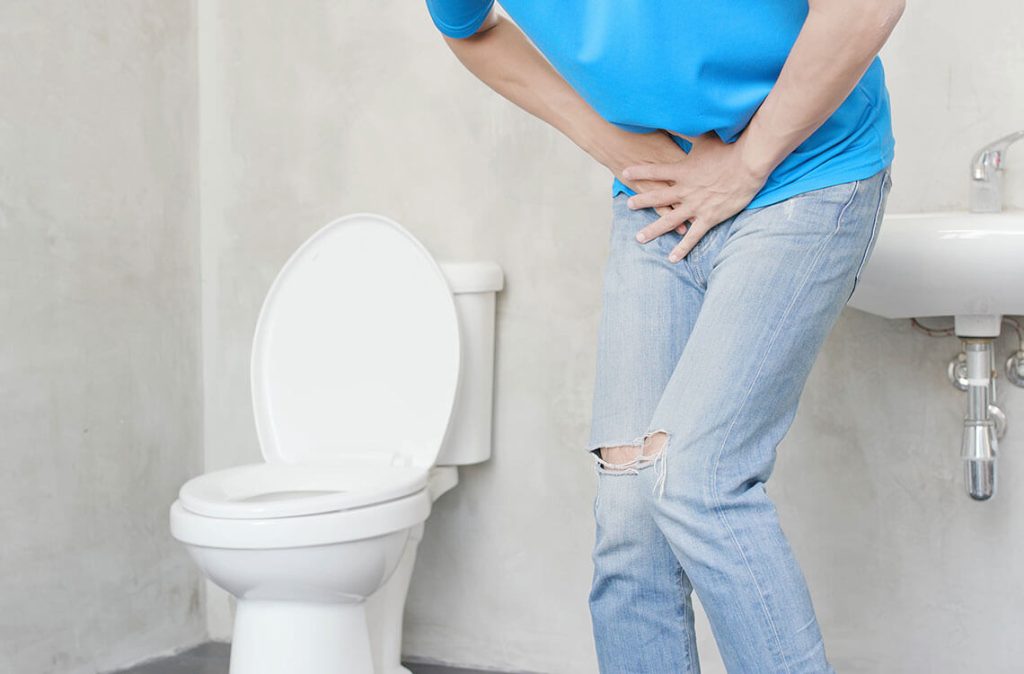You’ve tucked the kids in the for bedtime, said good night to your spouse and dozed off.
A few hours later, you’re interrupted from a pleasant, restful sleep with a nagging urge to pee.
You wake up frustrated, relieve yourself, and then go back to bed. But it’s too late, you can’t go back to sleep so you just stare at the ceiling until morning comes.
Some nights, you may even end up waking twice, and even three times just to urinate.
For many adults and parents, this reality is all too familiar.
While often not serious on its own, nighttime urination or nocturnal polyuria (nocturia for short), can be an annoying and often debilitating condition that can affect your sleep and quality of life.
For those unfamiliar with the term, nocturia is a condition where you have to get up to pee in the middle of night. Often more than once.
But unlike an overactive bladder where virtually no urine comes out, nocturia causes the opposite to occur.
You produce an excess amount of urine as you sleep.
While it’s a symptoms common to many disorders, here are some of the likely culprits that could be responsible for your nighttime bathroom trips.
What Causes Nighttime Urination?
If nocturia has negatively and seriously impacted your life, then it’s ideal to go to a doctor to get it treated.
But if you’ve ruled out all the usual culprits like diabetes, sleep apnea, edema, bladder issues, etc, and it’s still happening, then something else may be responsible.
Probably the most common cause could be stress and depression.
Cortisol plays an important roles in how your body regulates fluid retention.
Excess cortisol produced as a result of a stress has been shown to suppress ADH (antideuretic hormone), the hormone that stops your body from making urine at night.
When this hormone is not present when you sleep, your body continues making urine, which results in nighttime urinations.
Many experts agree that it’s normal to wake up at least once at night to pee.
So, this doesn’t technically mean you have nocturia.
Your doctor may not even prescribe you any medication if the symptoms are relatively mild. Especially if you don’t fulfil the criteria of waking up more than once.
However, for most of us who have trouble going back to sleep, once is enough.
And if this is a problem you’re facing, here are some home remedies that could help discipline your naughty bladder.
Home Remedies for Nocturia
Even if you don’t technically have nocturia, waking up in the middle of the night to pee (even once) can disrupt your sleep cycle.
So, it’s important to fix that before your health suffers.
Some lifestyle changes like reducing fluid intake 2 hours before bedtime and eating a low sodium diet are also recommended.
But if these things are not helping, here are some alternative treatments you can try.
Lower Your Stress Levels
As previously mentioned, excess cortisol may actually cause you to experience more urination.
And the number one cause of elevated cortisol levels is stressful life events.
If you cannot eliminate these stressors from your life, then take some measures to mitigate their effect on you.
Exercise, meditation, a healthy diet and a creative outlet are all common stress relievers.
But you can also take some supplements to help improve your chances.
Some of the more effective ones include ashwagandha which is a powerful adaptogen that can help reduce cortisol levels.
You can also try limiting your pre-bedtime screen use. Blue light has been shown to mess with your circadian rhythm.
Fix Your Sleep
Many people with nocturia seek treatment to improve their sleep, but some experts say that the reverse is also true.
Improving your sleep could help treat nocturia.
The first thing you have to do is fix your sleep hygiene.
Sleep hygiene refers to how conducive your environment is for sleeping.
Low or no illumination, zero noise and a comfortable temperature of 18 degree Celsius are just some of the factors that promote good sleep hygiene.
And just like with stress management, you can also try some natural supplements to help promote better sleep.
Tart cherry juice, for instance, has some science-backed properties that can help treat insomnia.
Take a cup of it a few hours before bedtime and see if it helps.
Increasing your intake of nuts (almonds, hazel nut and pumpkin seeds) and fish can also be said to improve sleep.
No More Late-Night Bathroom Trips
Many people who seek out nocturia treatments often don’t have any underlying issues.
If you’re one of these people, a trip to the doctor may not do you any good.
After all, stress and anxiety are not exactly easy things to treat, not even with medication.
It all comes down to lifestyle changes which may include a career shift, and other life altering decisions that can impact your family.
So, try out these tips in the meantime and hopefully you’ll no longer have those annoying late-night bathroom trips!
Disclaimer: The information provided in this article is for informational purposes only and should not be considered as medical advice from Motherhood. For any health-related concerns, it is advisable to consult with a qualified healthcare professional or medical practitioner.
For more insightful stories and fun recipes, stay tuned to Motherhood Story!
